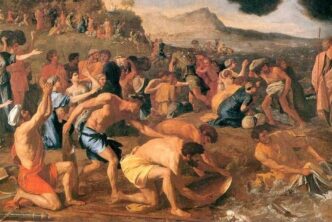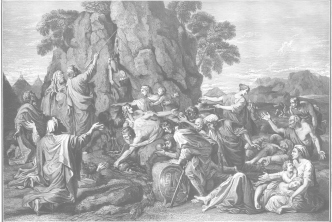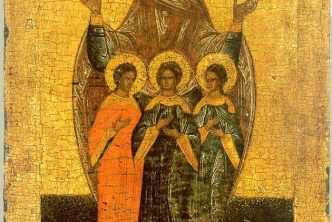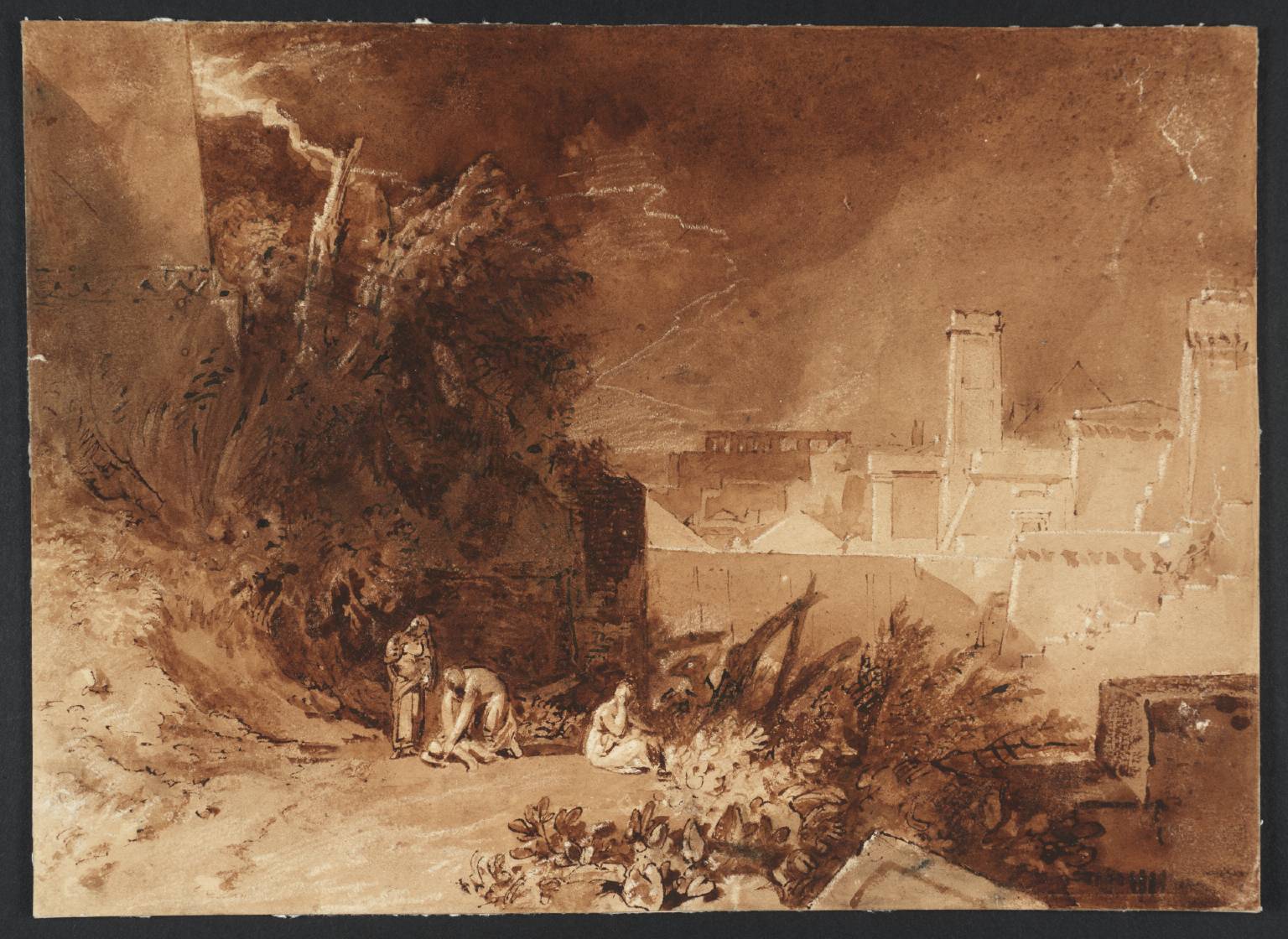
“[Jesus Christ], who though he was in the form of God, thought it not robbery to be equal to God, but emptied himself, taking the form of a slave, being made in the likeness of men, and found in guise as a man; he humbled himself, being made obedient even so far as to death, and that the death of the cross: wherefore, also, God exalted him exceedingly, and gave him the name which is above every name; that in the name of Jesus every knee should bow, of things in heaven, and things on earth, and things under the earth, and that every tongue should confess that Jesus is Lord in the glory of God the Father.” — Phil 2. 6–11
Being in the Form of God
“Who though he was in the form of God,” he says. If Christ were man only, He would have been described as “in the image of God,” not “in the form of God”; for we know that man was made in the image, not in the form, of God. Who, then, is this, Who was made “in the form of God,” this—angel? Why, we do not read of the form of God even in connection with angels; there is but One, this Son of God, incomparable and noble above all, the Word of God, Who in all His works is like unto His Father, Himself working as His Father works—He alone is, as we have asserted, in the form of God the Father. Rightly has He been declared to be in the form of God, seeing that He is above all, and holds divine authority over every creature, and is God after the pattern of the Father; yet this is by gift from God, Who is peculiarly His Father, that He might be both God and Lord of all, and God, according to the form of God the Father, begotten and brought forth from Him.
“He thought it not Robbery”
He, then, though “He was in the form of God, thought it not robbery to be equal to God.” For although He bore in mind that He was God, of God the Father, He never compared or ranked Himself with God the Father, mindful that He was of His Father, and that He holds the place He does, because the Father had given it to Him. Hence it is that both before and after He took upon Him the body of flesh, and again, after His resurrection, He rendered, and does render, all obedience, in all things, to the Father. All this proves that He never thought of His Divinity as a kind of usurpation, that He should make Himself equal to God the Father; on the contrary, He was obedient and subject to His Father’s rule and will in all things, content even to take upon Himself the form of a slave—that is, to be made the Man of Whom we know—and the substance of flesh and body, which He took upon Himself at His birth, as it came to Him from the slavery of the sins of His forefathers according to His manhood.
“He emptied Himself”
It was then that He emptied Himself, not disdaining to take upon Himself the human frailty that His new condition of existence involved. For if He had been born as a man only, He would not have been emptied thereby. A man is made the greater, not emptied, by being born; he begins to be something which could not be his when he did not exist, so that he is not emptied, as we said, but rather is made the greater and the richer. It was not so with Christ. He is emptied by the very fact of His birth, in taking upon Him the form of a slave. How, then, is He man only? If He were, it would have been more true to say that He was enriched by the incident of His birth, not emptied; as a matter of fact, the authority of the Divine Word, condescending for a time to take upon Himself manhood, and laying aside the full exercise of His powers, lowers and deposes Himself, for so long as He bears the manhood which He has taken upon Himself. He empties Himself, so long as He stoops to bear insults and abuse, listens to blasphemies, and submits to indignities.
The “Name above Every Name”
Yet at once His humility bears noble fruit; for He received “the name which is above every name”—the name which assuredly we can only understand to be the name of God. For it belongs to God alone to be above all things; it follows that that name, which is above every name, is His only, Who is above all things. For the name which is above every name is the name of God; this name must then of necessity belong to Him, Who, though He had been in the form of God, thought it not robbery to be equal to God. Indeed, if Christ were not God, every knee of things in heaven, and things on earth, and things under the earth, would not bow at His name; things visible and invisible, and the whole creation, would not be in subjection and subservience to a man. It would remember that it existed before man.
The Conclusion from the above Language
To sum up. Christ is said to be “in the form of God.” He is shown to have emptied Himself, even so far as to be born according to the flesh; He is declared to have received from the Father the name which is above every name; it is shown that every knee, of things in heaven, and things on earth, and things under the earth, bend and bow down at His name, and, strange as it may seem, it is asserted that this redounds to the glory of God the Father. It follows, that He is man, not only because He was made obedient even so far as to suffer death, and that the death of the cross, but not man only, seeing that from all these considerations, which shout aloud the Divinity of Christ, the Lord Jesus Christ is proved, in despite of the wishes of the heretics, to be God as well as man.
—
Get April’s free book, The Navarre Bible: Saint Luke’s Gospel.
This excerpt is adapted from Novatian, The Treatise of Novatian on the Trinity, trans. Herbert Moore, Translations of Christian Literature: Series II: Latin Texts (London; New York: Society for Promoting Christian Knowledge; The Macmillan Company, 1919), 103.






